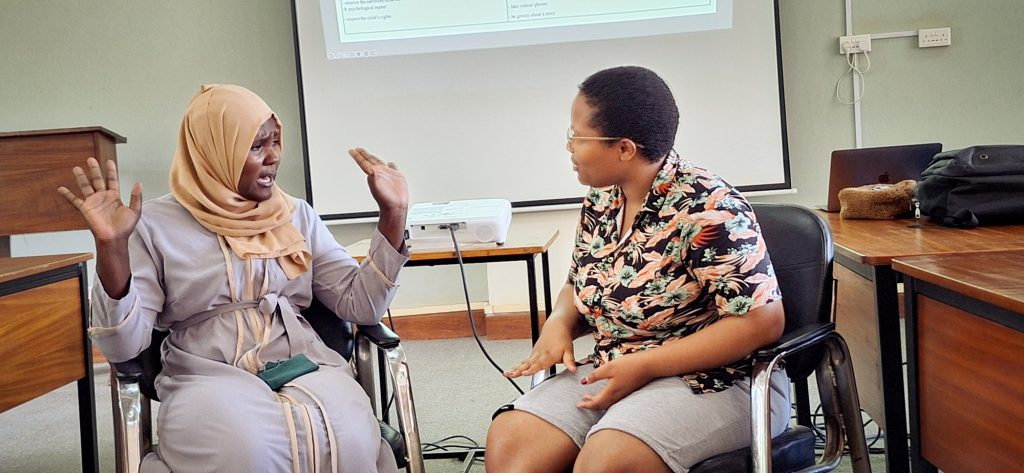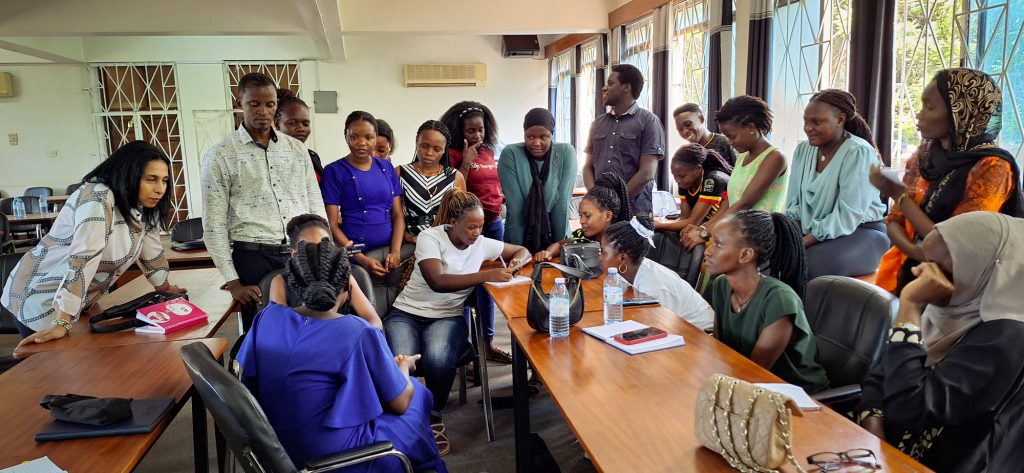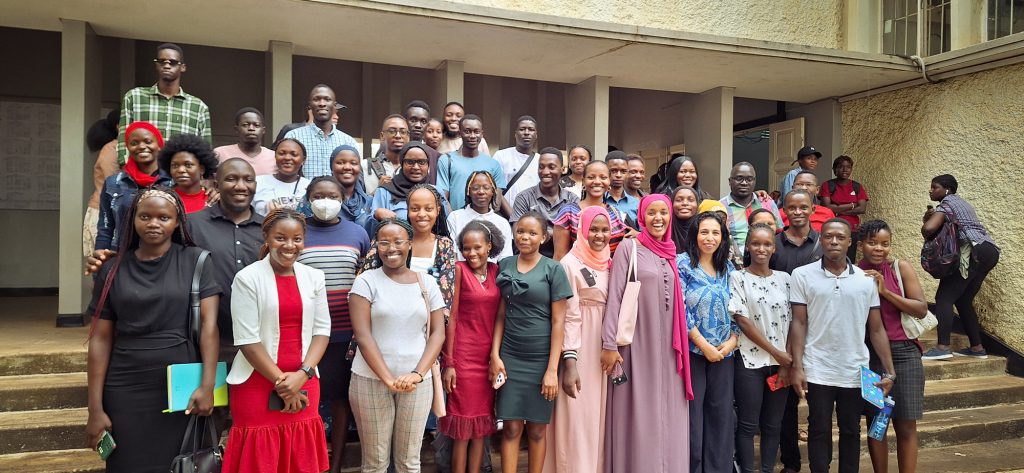Staying safe is key to telling the next story
By Gerald Walulya, JMIC coordinator – Uganda werald@gmail.com
Ugandan journalism students trained in safety and security.
Department of Journalism and Communication, Makerere University, Uganda, in cooperation with JMIC, conducted a four-day workshop on safety and security of journalists 25 -28 March, 2024. 66 final year journalism students attended this this edition of the yearly training program supported by JMIC.

Journalists in Uganda face serious safety threats that range from intimidation, physical and psychosocial harassment, arrest and detention on nearly a daily basis. Journalists are regularly targeted by state actors such as the military and the police, and non-state actors such as mobs, politicians and powerful business people who feel threatened by the journalists’ critical reporting. A 2022 report (Press Freedom Index -2022 Uncertain Future for the Media – HUMAN RIGTS NETWORK FOR JOURNALISTS-UGANDA) by a Uganda civil society organisation, Human Rights Network for Journalists, reported that there were 94 cases of human rights violations and abuses against journalists and media practitioners. A recent study (Full article: “I thought You Are Beautiful”: Uganda Women Journalists’ Tales of Mob Violence on Social Media) has also reported surging cases of online harassment of female journalists in Uganda.
The workshop was facilitated by local and international facilitators. Local facilitators included, Dr. Sara Namusoga, a Lecturer at the Department of Journalism and Communication, Culton Scovia Nakamya, a local Television journalist and Mr. Abubaker Lubowa, a photojournalist with Reuters and Nation Media Group and one of the pioneer trainees of the inaugural JMIC safety training in 2017. The local trainers were supported by Abeer Saady, a recognised international safety trainer affiliated with Journalism & Media International Centre.
The workshop covered topics such as online hygiene for journalists, a holistic approach to safety, risk management and safety planning while working in a hostile environment. Local trainers shared experiences of attacks on journalists. They advised participants to always stay in contact with their colleagues and supervisors while reporting in unsafe areas.

The lead trainer Abeer Saady said although the training was attended by many participants, it was very engaging. “The participants were very enthusiastic. The number was big, which was a challenge, but I tried my best to make it interactive. I give exercises so that I don’t only show them, but make them do. The mixture with local trainers was good, because local trainers brought context to the training. A majority of the participants were female, and an important aspect of the training was to speak about gender, and gender specific attacks.”
Participants noted that the training equipped them with the knowledge they require to stay safe while reporting.
QUOTES:
“I found the training extremely valuable. It provided critical insights into the challenges faced by journalists today and offered practical solutions for mitigating risks. The discussions on online and offline security by Culton Scovia were particularly enlightening, and I believe they are so essential for a budding journalist like me.” Kevin Mugabi, participant.

The workshop “was an invaluable experience, offering a comprehensive dive into crucial aspects of journalism. From digital security measures to safeguarding our equipment to navigating the ethical minefield of reporting in conflict zones. Every session was packed with practical insights. Learning how to conduct sensitive interviews with survivors and victims without causing undue emotional distress was particularly enlightening. The facilitator’s engaging approach, using real-life scenarios to drive home key points, made the entire experience dynamic and memorable.” Maxline Kansabe, participant.
